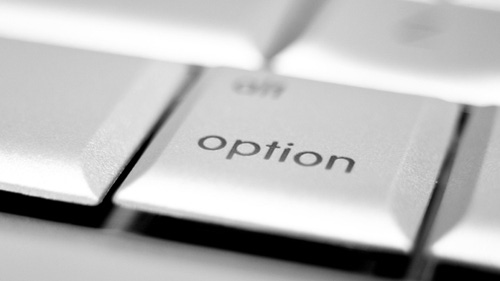Is healthcare overregulated to the point that it makes no sense and should patients get an option to bow out of HIPAA protection if they so choose? Intel's Worldwide Medical Director believes so.
July 9, 2014

America is a nation of choice.
Especially to someone who can remember only two government-controlled TV channels as a pre-teen in India in the 1980s, the choice that we as Americans have not only in terms of the idiot box, but everything else, is sometimes dizzying.
That choice has become even more widespread with advances in technology. We are forever making choices. We are constantly opting in and out.
Except when it comes to healthcare. There, no matter what we would prefer, we are held fast to HIPAA. Imagine being only allowed to communicate using feather quills and ink while email and texting were readily available.
Now Dr. Mark Blatt, Intel's Worldwide Medical Director, is expounding a radical though rational idea. Let patients decide whether they want to opt out of HIPAA guidelines. Blatt recently participated in the U.S. House of Representative’s Energy and Commerce Committee roundtable discussion, 21st Century Cures, to talk about balancing health IT innovation and regulation.
Following that discussion, in a blog post, Blatt writes the following:
My message to the representatives and the panel was that we should be creating a climate that favors risk, and shouldn’t pass regulations that so protect citizens that nothing happens. After all, healthcare data belongs to the patient and it should be their right to use it however they want to. What if they want to opt out of HIPPA guidelines? They should be able to. What if I want one facility to send my data to another electronically? I should be able to. We don’t live in a one-size-fits-all society anymore and we should give patients choices when it comes to their personal health data and care.
Blatt is advocating that people be given the freedom to opt out of HIPAA in the same way that we decide to opt out of marketing emails and newsletters routinely.
A recent experience with HIPAA gets me to wholeheartedly support this. I needed my almost 3-year-old's lab results from a few months ago, but a simple phone request was not enough. I needed to sign and mail or fax a medical records release form. The form was available for download, but scanning and emailing was not an option. Not sure who this extra layer of bureaucracy was protecting, but it did bring annoyance for sure.
Several high-profile people are also chaffing under HIPAA restrictions. Here's a portion of what Google co-founder Larry Page told venture capitalist Vinod Khosla at the recent KV (Khosla Ventures) CEO Summit:
Imagine you had the ability to search people's medical records in the U.S. Any medical researcher can do it. Maybe they have the names removed. Maybe when the medical researcher searches your data, you get to see which researcher searched it and why. I imagine that would save 10,000 lives in the first year. Just that. That's almost impossible to do because of HIPPA. I do worry that we regulate ourselves out of some really great possibilities that are certainly on the data-mining end.
Choice perhaps can solve some of healthcare's problems. If patients understand HIPAA guidelines and decide that they want none of it, they should have a right to. After all, HIPAA is not exactly protecting people in the same way seats belts do in cars.
For that to happen one must acknowledge that healthcare laws are perhaps a bit out of sync with how people and technology have evolved. That doesn't necessarily mean that HIPAA needs to be jettissoned altogether. Only that people - especially the Gen Y that Dr. Blatt talks about - should get a choice to opt out.
Maybe it’s time to admit to ourselves that the current healthcare systems needs to be unwound and undone. Medical treatment is no longer only available through human interaction. The Gen Y generation wants convenient, inexpensive care that is never wrong. They are willing to sacrifice a friendly relationship with an elderly doctor so that the care is affordable and accurate. You have to balance things. It’s about choice. Allow for face-to-face care, or another way. Young people today want to push a button on a mobile device and get immediate, cheap help. Let them.
I hope that the representatives in the room last week don’t pass laws that favor one form of care over the other. If they really want to be effective and change the healthcare system, they should create a level playing field for both types of care and let the consumer choose.
Truer words were perhaps never better spoken.
[Photo Credit: iStockphoto.com user alephx01]
-- By Arundhati Parmar, Senior Editor, MD+DI
[email protected]
You May Also Like


